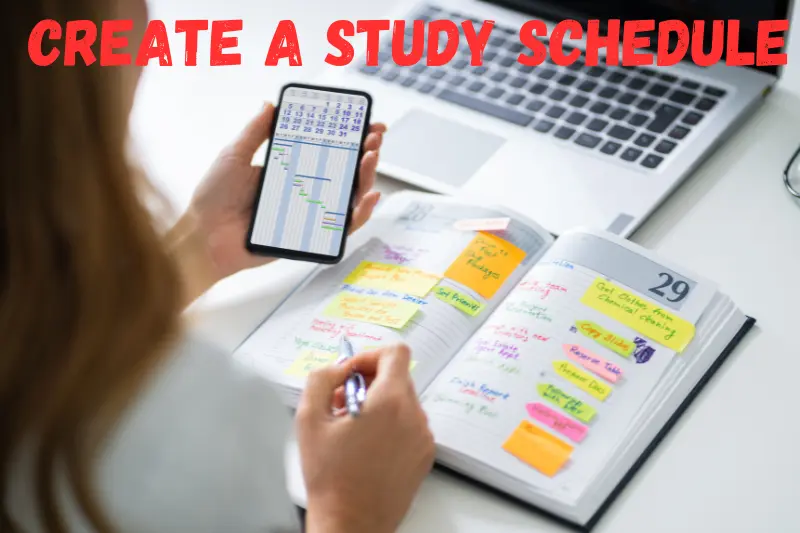Transitioning from high school to college can be a challenging experience. The coursework is often more rigorous, and the study methods that worked in high school may not be as effective in college. Many students struggle to find the right strategies to keep up with their academic demands. However, by implementing the best study tips, you can improve your learning efficiency, retain information better, and achieve academic success.
Psychologist Jessie Schwab from the Harvard College Writing Program points out that many students misjudge their own learning abilities. Simply memorizing information is not the same as truly understanding and retaining it. Research in cognitive science has shown that students often believe they have learned something when, in reality, they may struggle to recall it later.
That’s why using the best study tips is essential to ensuring long-term academic success.To help you navigate your studies effectively, we’ve compiled 12 best study tips that will enhance your focus, comprehension, and retention.
1. Create a Study Schedule

One of the most important best study tips is to develop a structured study routine. Studying at random times without a plan can lead to procrastination and ineffective learning. Instead, set aside dedicated study periods each day to build a habit of consistent learning.
How to Create an Effective Study Schedule:
- Identify your most productive times of the day (morning, afternoon, or evening).
- Allocate time for each subject based on difficulty and priority.
- Use a planner or digital calendar to track assignments and deadlines.
- Stick to your schedule, but allow some flexibility for unexpected tasks.
By following a consistent routine, you’ll be better prepared for exams and avoid last-minute cramming.
2. Find Your Optimal Study Environment
The right study environment plays a crucial role in focus and concentration. Some students prefer total silence, while others work better with background noise. Find a space that enhances your ability to concentrate.
Tips for Creating a Productive Study Space:
- Choose a quiet and clutter-free location.
- Minimize distractions by putting your phone on silent or using website blockers.
- Ensure good lighting and comfortable seating.
- Keep all necessary study materials within reach.
A well-organized study space helps you stay focused and motivated.
You may also like to read this:
14 Best Online Learning Platforms For Career And Skills
Latest Education News: AI In Education And Future Trends
18 Career Guidance And Tips For Millennial Success
Best 18 Educational Apps For Students You Need To Try
3. Use Active Learning Techniques
Many students make the mistake of passively reading their textbooks or notes without engaging with the material. Active learning involves interacting with the content to improve retention and understanding.
Effective Active Learning Strategies:
- Summarization: Write down key points in your own words.
- Teaching Others: Explain concepts to a friend or even to yourself aloud.
- Flashcards: Use flashcards for key terms and concepts.
- Practice Problems: Solve questions related to your subject to reinforce learning.
Active learning forces you to process information deeply, making it easier to recall later.
4. Take Effective Notes
Note-taking is an essential part of studying, but not all notes are created equal. Writing down every word from a lecture is not effective. Instead, use structured note-taking methods to retain key information.
Best Note-Taking Methods:
- The Cornell Method: Divide your page into three sections—main notes, keywords, and a summary.
- Mind Maps: Use diagrams to visually organize complex concepts.
- Highlighting Key Points: Focus on important terms, formulas, and definitions.
Good notes will serve as a valuable resource for revision and exam preparation.
5. Test Yourself Regularly
One of the most effective best study tips is self-quizzing. Research shows that testing yourself improves memory retention and helps identify weak areas.
Ways to Test Yourself:
- Take practice exams.
- Use online quizzes and flashcards.
- Try the “teach-back” method—explain the topic without looking at your notes.
Retrieval practice strengthens your memory and boosts confidence before exams.
6. Avoid Multitasking

Many students believe they can multitask effectively, but research shows that switching between tasks reduces focus and efficiency. Studying while checking social media or watching TV decreases productivity.
How to Improve Focus:
- Work on one subject at a time.
- Use the “Do Not Disturb” mode on your phone or apps like Forest to block distractions.
- Take short breaks between study sessions instead of trying to do everything at once.
Focusing on one task at a time leads to better comprehension and retention.
7. Use Mnemonics and Memory Aids
Mnemonics are memory techniques that help you remember complex information by associating it with something familiar.
Examples of Mnemonics:
- Acronyms: Example—PEMDAS (Parentheses, Exponents, Multiplication, Division, Addition, Subtraction) for math order of operations.
- Rhymes and Songs: Creating rhymes to remember facts.
- Visualization: Associating information with images or stories.
Using memory aids makes recalling information easier during exams.
8. Stay Organized
Organization is key to staying on top of your coursework and assignments. Disorganization can lead to missed deadlines and unnecessary stress.
How to Stay Organized:
- Keep a planner or use apps like Google Calendar to track assignments.
- Organize your notes by subject and date.
- Create to-do lists for daily study goals.
A well-structured study plan helps you stay in control of your workload.
9. Take Breaks with the Pomodoro Technique
Studying for long hours without breaks leads to burnout and reduced concentration. The Pomodoro Technique helps maintain focus and prevents mental fatigue.
How the Pomodoro Technique Works:
- Study for 25-50 minutes.
- Take a 5-10 minute break.
- Repeat the cycle.
- After four cycles, take a longer 20-30 minute break.
Short breaks help refresh your mind and improve overall productivity.
10. Seek Help When Needed
If you’re struggling with a subject, don’t hesitate to ask for help. Many students wait too long before seeking assistance, which can negatively impact their grades.
Where to Find Help:
- Professors and teaching assistants during office hours.
- Study groups with classmates.
- Online resources like Khan Academy or Coursera.
- College tutoring centers.
Getting support early can make a big difference in your academic success.
11. Maintain a Healthy Lifestyle
Your physical and mental health directly impact your academic performance. Taking care of your body and mind is just as important as studying.
Tips for a Healthy Lifestyle:
- Get at least 7-8 hours of sleep per night.
- Eat a balanced diet with brain-boosting foods like nuts, fish, and leafy greens.
- Exercise regularly to improve concentration.
- Practice stress management techniques such as meditation or deep breathing.
A healthy body supports a sharp mind.
12. Stay Motivated and Set Goals
Setting clear goals helps keep you motivated throughout the semester. Without motivation, it’s easy to procrastinate and fall behind.
How to Stay Motivated:
- Set SMART goals (Specific, Measurable, Achievable, Relevant, Time-bound).
- Reward yourself after completing study sessions.
- Stay positive and remind yourself why you’re working hard.
Having a goal-driven mindset helps you stay committed to your studies.
Conclusion
Succeeding in college requires more than just memorization—it requires smart study techniques. By applying these best study tips, you can improve retention, stay organized, and perform better academically.
Planning ahead, practicing active learning, and maintaining a balanced lifestyle will help you thrive in your studies. Implement these strategies, stay consistent, and you’ll set yourself up for academic success!
FAQs
1. What are the best study tips for improving retention?
The best study tips for improving retention include active learning techniques, self-quizzing, using mnemonics, and summarizing information in your own words. Engaging with the material rather than passively reading helps reinforce long-term memory.
2. How can I stay focused while studying?
To stay focused, create a distraction-free study environment, use the Pomodoro Technique (study in short sessions with breaks), and avoid multitasking. Turning off notifications and using website blockers can also help minimize distractions.
3. What is the most effective way to take notes?
The most effective note-taking methods include:
The Cornell Method: Organizing notes into sections for easy review.
Mind Mapping: Using diagrams to visualize concepts.
Highlighting and Summarization: Writing down key points in your own words.
4. How can I avoid procrastination while studying?
Avoid procrastination by setting clear study goals, breaking tasks into smaller steps, and creating a study schedule. Reward yourself after completing tasks and use productivity apps like Forest or Todoist to stay on track.
5. How often should I take breaks while studying?
Studies suggest taking a 5-10 minute break after every 25-50 minutes of focused study time. The Pomodoro Technique is a great way to balance work and rest, preventing mental fatigue.



